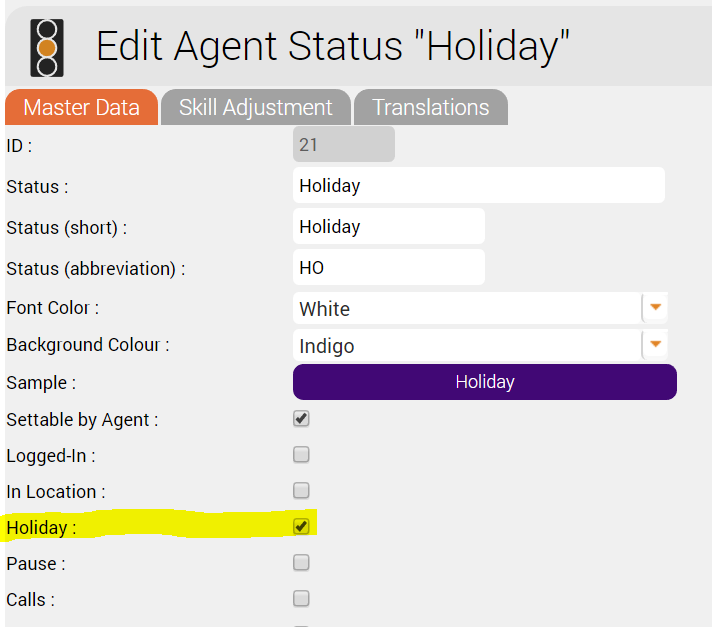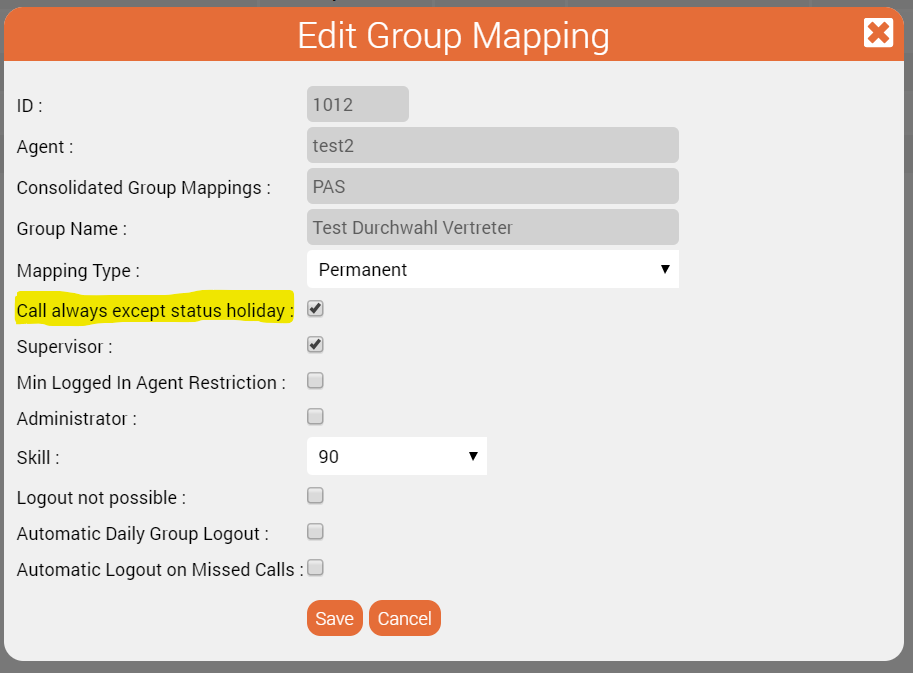| Sv translation | ||
|---|---|---|
| ||
This section discusses example configuration scenarios for the ACD. Personal Extensions / Deputy RoutingWhen personal extensions are used, it is often desired, that the telephone should ring no matter what status the agent currently has in the ACD. This can be achieved using an IVR application, with the disadvantage, that the statistics for these calls will not show up in the acd statistics. To create such scenarios, Release 3.11 of the ACD includes features which allow this to be configured much more easily without leaving the ACD. ScenarioIf the extension of a worker is called, the call should be routed according to the following schema:
Solution
The result is, that the extension will always be called, unless the worker has a status Holiday, when the extension is free according to the PBX connector. |
| Sv translation | ||
|---|---|---|
| ||
Hier werden Beispiel-Konfigurationsszenarien für die ACD diskutiert. Persönliche Durchwahlen / VertreterregelungBei der Nutzung von persönlichen Durchwahlen, ist es oft der Wunsch, dass das Telefon - unabhängig des Status des Agenten, dann klingelt. Dies lässt sich über eine IVR Applikation selbstverständlich realisieren, mit den Nachteil, dass man vieles an statistischen Daten nicht mehr in der ACD Statistik findet. Um solche Szenarien abzubilden, wurde die ACD im Release 3.11 so erweitert, dass persönliche Durchwahlen mit Vertreterregelung einfacher realisiert werden können. SzenarioWird die Durchwahl des Mitarbeiters in der ACD angerufen, soll das Gespräch nach folgenden Schema verteilt werden:
Lösung
Das Ergebnis ist, dass der Apparat immer dann angerufen wird, wenn der Mitarbeiter nicht im Status Urlaub sich befindet, und der Apparat ist frei. |
| Sv translation | ||
|---|---|---|
| ||
Cette section présente des exemples de scénarios de configuration pour l'ACD. Extensions personnelles / Routage des adjointsLorsque des postes personnels sont utilisés, il est souvent souhaitable que le téléphone sonne, quel que soit le statut de l'agent dans l'ACD. Ceci peut être réalisé en utilisant une application IVR, avec l'inconvénient que les statistiques de ces appels n'apparaîtront pas dans les statistiques de l'ACD. Pour créer de tels scénarios, la version 3,11 de l'ACD comprend des fonctionnalités qui permettent de configurer beaucoup plus facilement sans quitter l'ACD. ScénarioSi le poste d'un travailleur est appelé, l'appel doit être routé selon le schéma suivant :
Solution
Il en résulte que l'extension sera toujours appelée, sauf si le travailleur a un statut de jour férié, lorsque l'extension est libre selon le connecteur du PBX. |



